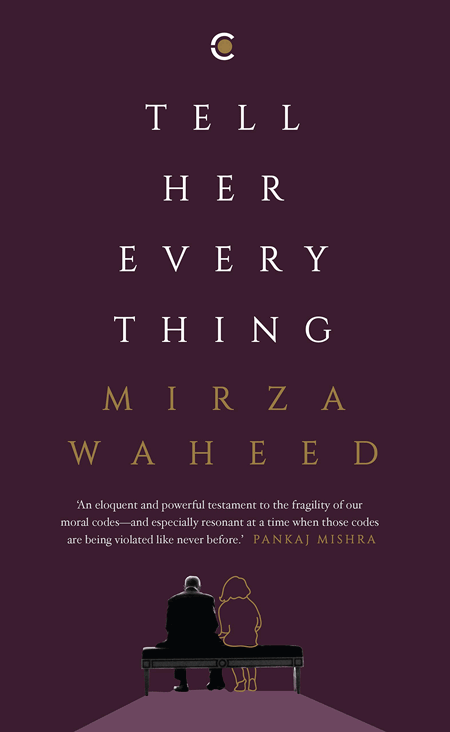Book Review: Tell Her Everything
By Zehra Nabi | Bookmark | Published 6 years ago
 “I know I’ve been a bit, how do I describe it, meandering, Sara, circling around.”
“I know I’ve been a bit, how do I describe it, meandering, Sara, circling around.”
These are the words of Dr Kaiser Shah (also known as Dr K), the protagonist of Tell Her Everything, which appear towards the end of the novel. Originally from India, Dr K now lives in London and the woman he is addressing is his grown daughter who he sent away to boarding school years ago, after the death of his wife. The entire novel, in fact, is directed towards her and reads more like one relentless monologue rather than a conventional first-person narrative with action unfolding chronologically.
There are many things K wants to share with his daughter over the course of the novel, but the particular focus is on why he sent her away and the kind of work he took up as a doctor to lift himself from the poverty he grew up in. Corporal punishments – amputations of hands in particular – are what Dr K did for many years in an unnamed country (presumably in the Middle East), where the hospital fell under the state’s legal system. And the manner in which he shares his memories is circuitous and repetitive as he himself admits in the above quote. In fact, to be perfectly frank, the writing feels a bit tedious with the constant digressions and unfinished stories that Dr K slowly threads together over the course of the novel. And yet, it also seems unfair to fault the protagonist’s style of narrating. Of course the writing is circumlocutory. Would we really expect a father to merrily explain how he chopped off the hands of minor criminals to pay for his daughter’s boarding school tuition? Would he divulge all the gory details when all he really wants is to make amends and re-establish his relationship with her. He would meander and circle around. Of course, he would.
There’s something neurotic about the way he directly appeals to Sara and then, seems to be imagining her response (even though the monologue isn’t exactly a letter to her), and at other times he seems to be informing the reader about what he wants to tell her. Variations of the following quotes are littered throughout the novel:
“…I’ve decided to tell her everything, the whole truth, as straight as possible.”
“What happened was this. I’ll tell Sara.”
“Well, what can I say, Sara.”
“‘No Sir’ is all I could say, Sara. What else could I have said?”
All these asides and the fact that events are often hinted at instead of directly described, prevent the reader from having a fully immersive reading experience. And again, this seems like an unfair criticism because not all books aspire to follow established tropes of storytelling and they shouldn’t be faulted for playing around with conventions.
But, but, but! There must be something to help propel the narrative forward, or something that heightens narrative tension, or something that simply makes the reader keep reading the book. For me, and this is a matter of personal preference; I’d happily read a plotless novel if there are sharp sentences and details on each page. And in Tell Her Everything, I found lost opportunities. One particular scene stands out in this regard. Early on in the novel, Dr K describes how the Corrections Department sent over a young man who had already been tortured for some unknown crime. The boy’s condition left Dr K startled, but before we can learn exactly what happened to the boy, the author pushes the reader into the future. Dr K describes it thus: “Many years later, the boy’s face came back to me out of nowhere when I saw posters for an exhibition by the artist Edward Munch at the Tate Modern. I looked up Munch on the internet later and was transfixed by the images. The boy’s face will probably follow me to my dying day.” What we’ve received is a brief summary, but what I was left wanting was a scene. A proper scene in which action unfolds and we can see how the Munch image reminds Dr K of the boy. A proper scene with sensory descriptions of not just the poster, but also the street, the air, the time of day. Let me slip into the story and don’t keep me at arm’s length, is what I’d say to Dr K if I could.
Zehra Nabi is a graduate student in The Writing Seminars at the Johns Hopkins University. She previously worked at Newsline and The Express Tribune.


